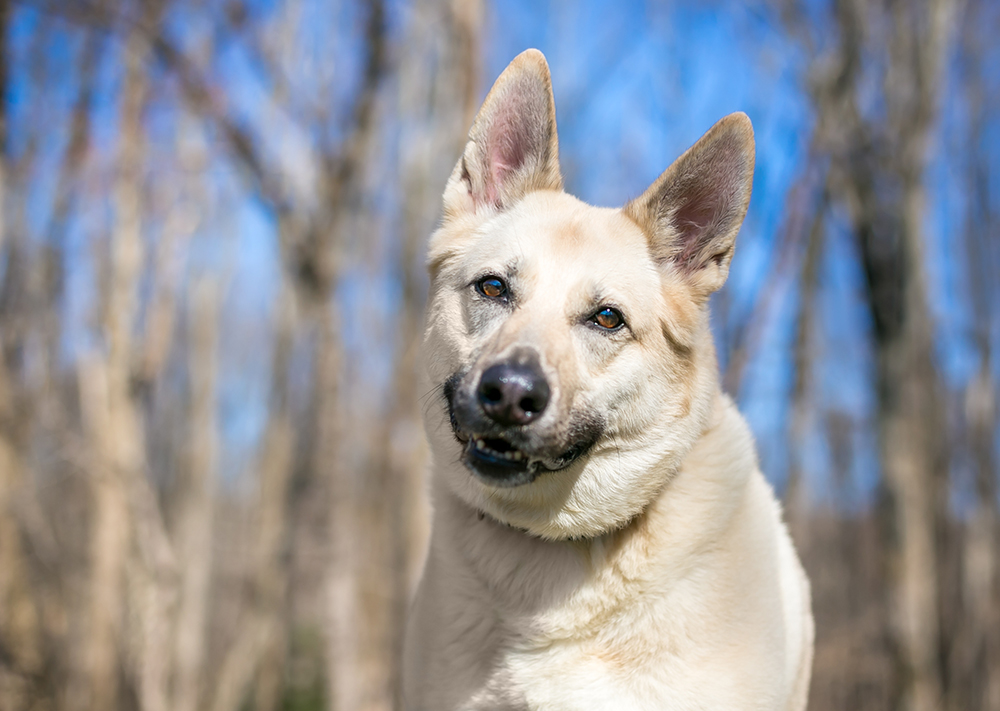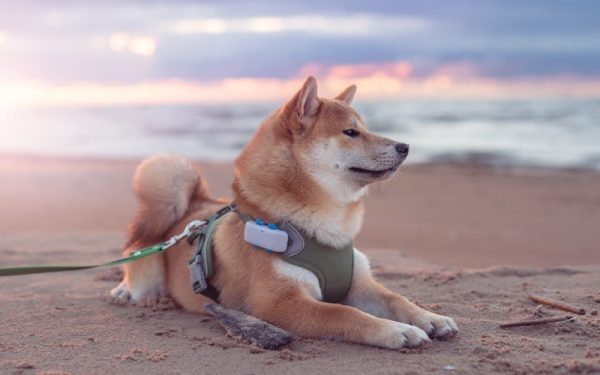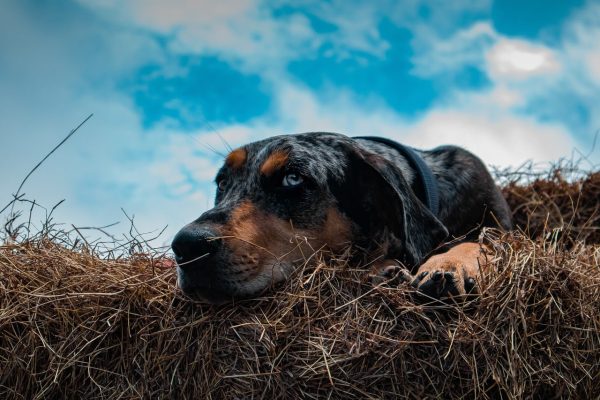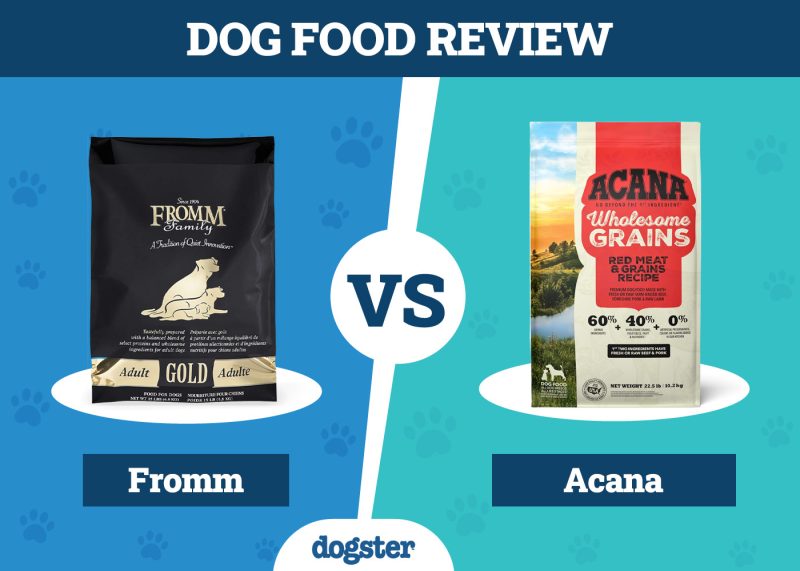In this article
View 8 More +The Alaskan Husky German Shepherd Mix, also known as the Alaskan Husky Shepherd, is an intelligent and energetic breed that will seamlessly fit in with an active family. They’re affectionate, loyal, and gentle, but they also can be prone to stubbornness and can be extremely clingy. Read on to learn more about this hybrid to determine if they’ll fit in with your lifestyle and your family.
Breed Overview
Height:
20–26 inches
Weight:
35–88 pounds
Lifespan:
9–13 years
Colors:
Black, gray, red, brown, white, sable, tan, liver, etc.
Suitable for:
Experienced dog owners, active people, families with older children
Temperament:
Loyal, gentle, athletic, affectionate, energetic
Alaskan Husky Shepherds combine the working dog traits of their parent breeds. They’re intelligent, powerful, alert, and observant. They thrive in homes where they have a job to do as they’re always ready and willing to work hard.
Alaskan Husky German Shepherd Mix Characteristics

Alaskan Husky German Shepherd Mix Puppies
The Alaskan Husky German Shepherd is not a very common hybrid (at least not in the way Goldendoodles are), so finding a breeder focusing on pairing the two breeds may be a challenge.
Potential owners will have better luck searching for this mix at their local rescues or humane societies. We also recommend using PetFinder.com to hunt for an Alaskan Husky Shepherd. This website offers a database of thousands of rescues and shelters across North America, so searching for a specific breed near (and far) from you is very easy.
Alaskan Husky German Shepherd Mix Breed Origin & History
Since the Alaskan Husky German Shepherd is a mixed breed, no one knows for sure where it was first developed. However, the origin and history of both parent breeds are well documented.
As their name suggests, the Alaskan Husky originates from Alaska. They’re the most commonly used breed for competitive dog sled racing and were developed specifically for performance.
German Shepherds, as their name suggests, were initially developed in Germany. They were developed from traditional German herding dogs in 1899 and were originally used for herding sheep.
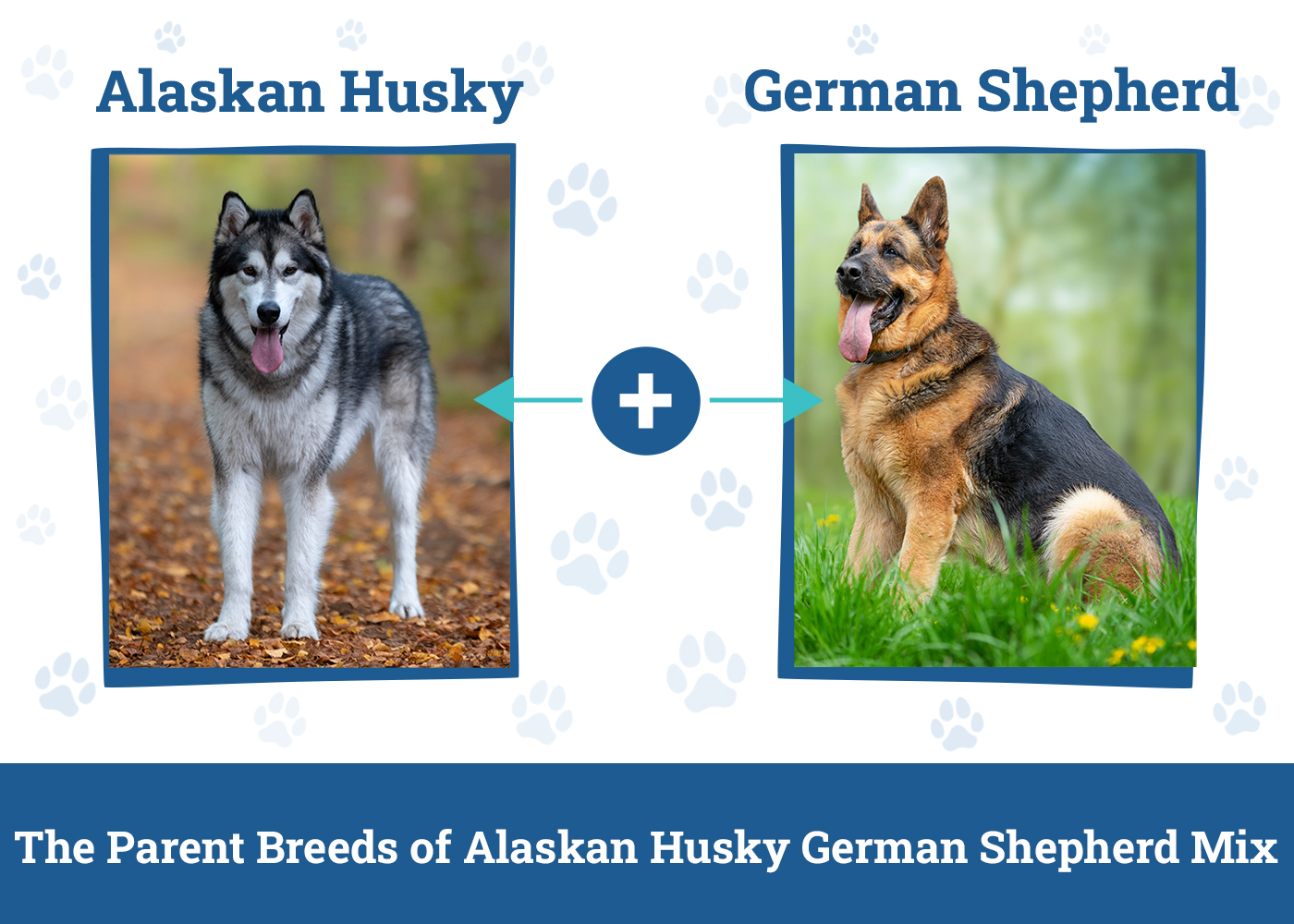

Temperament & Intelligence of the Alaskan Husky German Shepherd Mix
The personality of the Alaskan Husky German Shepherd mix can vary a bit, especially considering the wide range of genetic backgrounds (e.g., Siberian Husky, Greyhound, German Shorthair Pointer, etc.) in their Alaskan Husky parents. However, predicting personality traits isn’t entirely impossible when considering all the breeds whose DNA is in this hybrid. There are a few core traits that almost all these dogs share.
The Alaskan Husky German Shepherd mix is a strong-willed, confident, and hardworking dog breed. Born to work, herd, and run, the Alaskan Husky Shepherd is very high-energy and requires a lot of mental and physical stimulation. However, their affectionate temperament and strong loyalty toward their humans make them a fantastic addition to active families. The Alaskan Husky parent instilled in this hybrid a strong pack mentality that makes them love being part of a family, so they don’t enjoy spending time alone for too long.
These dogs will be loyal and loving toward their families, though they may be reserved toward new people and strangers.
Since their German Shepherd parents are one of the most intelligent dog breeds, falling only behind the Border Collie and the Poodle, you can expect the Alaskan Husky German Shepherd to be brilliant. Their intelligence can make them a little stubborn at times, so they require an owner who isn’t afraid to show strong leadership and step into the Alpha role.
Are These Dogs Good for Families? 👪
These hybrid dogs can be a good fit for some families. Their Alaskan Husky parents are naturally pack animals, so they can fare well in the family setting. Their German Shepherd parents can also be fantastic dogs for families as they’re generally very sweet-natured and affectionate.
However, this is a very high-energy breed whose rambunctiousness may not be suitable for families with young children. Additionally, their stocky size and muscular build may make it easier for them to unintentionally injure your small children during playtime.
It’s important to consider what types of activities you’d like to do with your family pet before choosing a breed. The Alaskan Husky German Shepherd mix is an affectionate and loyal dog, but they’re not destined to be lap dogs. These hardworking pups will put a lot of focus on completing their tasks, not necessarily playing with the kids or snuggling.
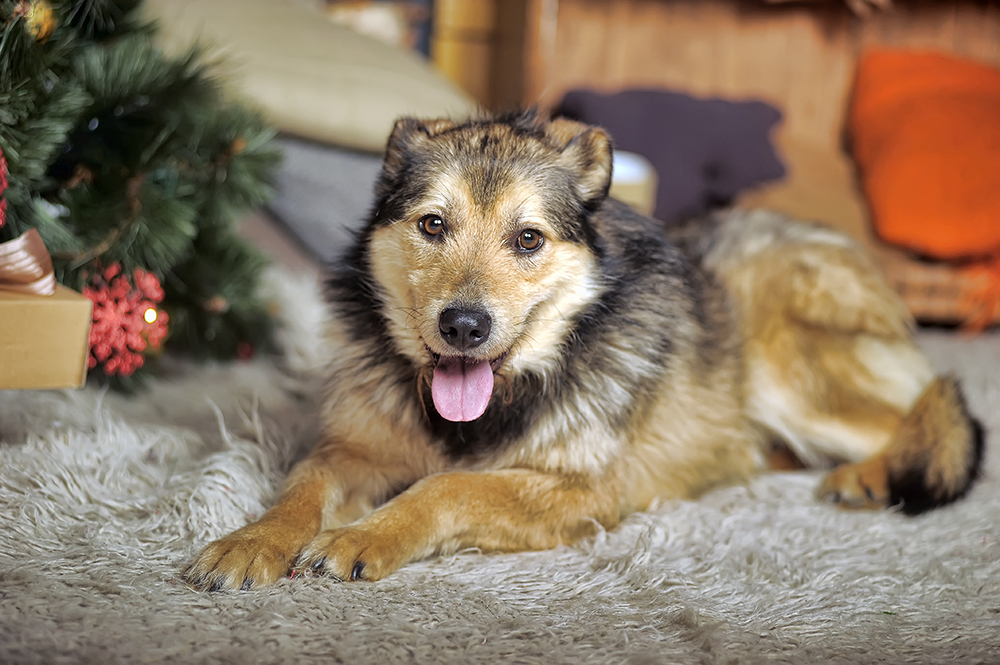
Does This Breed Get Along With Other Pets? 🐶 😽
The Alaskan Husky German Shepherd can get along well with other dogs, but individual temperament and socialization play a critical role. They may behave aggressively toward strange dogs, but, again, this can be addressed through socialization and training.
This breed may not be ideal for households with cats or other small animals. Both parent breeds have a high prey drive and cannot differentiate between pesky critters and your household cat. However, breed disposition doesn’t mean every individual dog will react that way. They may be able to live alongside other household pets so long as they’ve been brought up together. Supervised introductions and ongoing positive reinforcement will be vital in fostering a relationship between your pets.

Things to Know When Owning an Alaskan Husky German Shepherd Mix
Food & Diet Requirements 🦴
The Alaskan Husky German Shepherd’s diet should consist of complete and balanced commercially prepared dog food suitable for their life stage. Large-breed puppies have different nutritional requirements than their smaller-breed counterparts. As puppies, these dogs will need high-energy food to meet their energy expenditure. A puppy-specific diet places a focus on calcium, protein, and other vitamins and minerals that impact skeletal development.
Once they reach adulthood, you can switch your pup to a dog food formulated for large breeds. These diets will consist of nutrients necessary for joint health and offer the right blend of nutrients to ensure your pup thrives.
Owners might also ask their veterinarians whether their pup should be on a food designed for active dogs.
If you need to speak with a vet but can't get to one, head over to PangoVet. It's our online service where you can talk to a vet online and get the personalized advice you need for your pet — all at an affordable price!

Large breeds can be at risk of gastric dilatation-volvulus (GDV), a life-threatening condition that occurs when the stomach twists upon itself. Emergency surgery is the only treatment for GDV. Owners can prevent their dogs from developing this condition by feeding smaller, more frequent meals and encouraging their dogs to slow down when they eat. Physical activity should also be limited directly before or after meals.
It’s essential to monitor caloric intake regardless of age, however, as too many calories can lead to obesity.
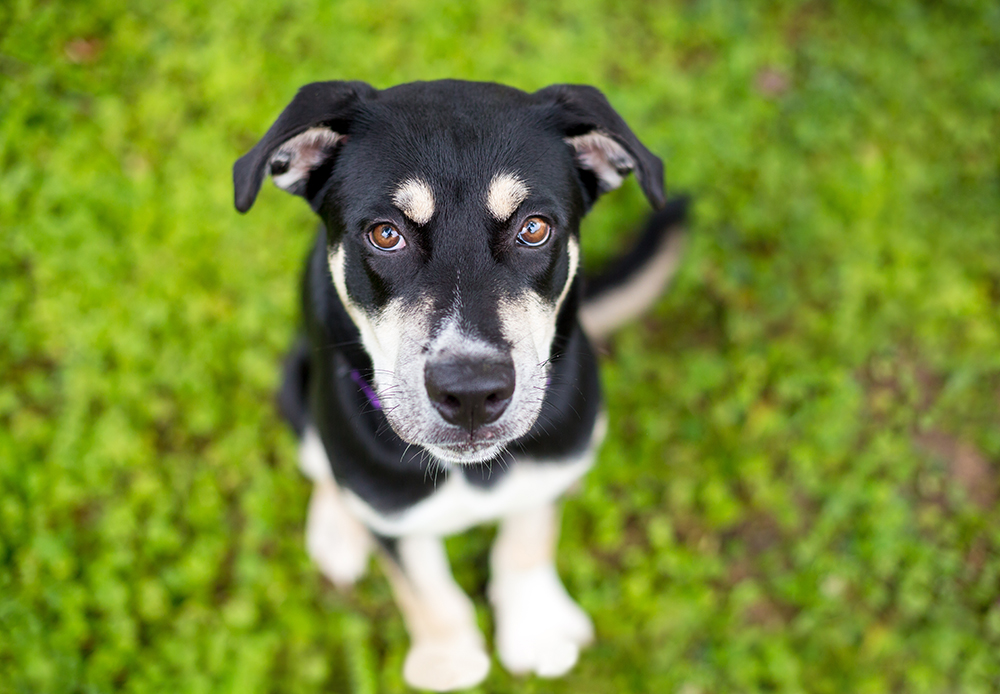
Exercise 🐕
Alaskan Husky German Shepherds have working dog DNA coursing through their veins, so potential owners should be willing to meet their pup’s somewhat demanding exercise needs. These dogs will require anywhere between 1.5 and 2 hours of exercise daily to ensure their physical and mental needs are met. Activities like walking, jogging, playing fetch, training, and hiking are ideal for these pups. They’ll also enjoy things like tracking, agility, nose work, and herding.
For mental stimulation, owners should provide opportunities for training and playing interactive games—anything to keep their pups from getting bored. A bored Alaskan Husky Shepherd can become restless and turn to problematic behaviors like barking to try to relieve themselves of their boredom.
Training 🎾
This hybrid is very active and requires training and socialization to keep them out of trouble and help them develop into well-rounded adults. They thrive on consistency and positive reinforcement, but it’s best to keep training sessions to around ten minutes to keep them on track. Rewards systems involving high-value treats and fun toys go a long way for these dogs while also strengthening the owner-animal bond.
Despite their high intelligence, the Alaskan Husky Shepherd can be challenging to train. Their owners should be confident, assertive, and willing to step into the pack leader role.
Grooming ✂️
The Alaskan Husky German Shepherd mix will usually have a double coat, which is seen in all colors and patterns. While their undercoat will be soft, the outer coat is tight and heavy. They will do a fair amount of shedding, so at-home grooming in between professional grooms will be necessary.
This breed only needs bathing a few times per year as excessive bathing can strip their coat of the natural oils present to protect the skin and coat. Pet wipes are a great product to have on hand for in between bath cleaning. During periods of heavy shedding, shampooing them with dog-friendly products may be able to help cut back on some of the hair floating around your room.
Health and Conditions ❤️
Alaskan Husky German Shepherds are relatively healthy dogs, but they can develop health conditions that are known to afflict the parent breeds.
German Shepherds are prone to degenerative myelopathy, elbow and hip dysplasia, cancer, bloat, allergies, and heart disease.
Alaskan Huskies can also develop hip dysplasia, as well as eye problems, and hypothyroidism.
- Allergies
- Eye conditions
- Degenerative myelopathy
- Hip dysplasia
- Elbow dysplasia
- Cancer
- Bloat
- Heart disease
- Hypothyroidism
Male vs Female
As with many large-sized dog breeds, the most significant difference between male and female Alaskan Husky German Shepherds is their size. Males can be significantly heavier than their female counterparts, weighing as much as 40 pounds more! Males will also generally be taller than females, but the difference in height is not as staggering as it is in weight.

3 Little-Known Facts About the Alaskan Husky German Shepherd Mix
1. Alaskan Husky German Shepherds make excellent working dogs.
Both the Alaskan Husky and the German Shepherd were born and bred working dogs. Alaskan Huskies were developed specifically to be sled dogs and are the most commonly used breed for competitive sled dog races. German Shepherds were initially bred to herd sheep; however, they’ve since been used in an array of positions such as disability assistance, police work, and even warfare.
2. Alaskan Husky German Shepherds are not recommended for first-time dog owners.
If you’re a first-time dog owner searching for the perfect breed to welcome into your home, we highly recommend reconsidering the Alaskan Husky German Shepherd. They’re far better suited for experienced dog owners who have a lot of time to invest in high-quality training. It takes a lot of work, patience, and effort, and most first-time owners will find themselves way over their heads with these dogs’ demands.
3. Alaskan Huskies aren’t a recognized breed.
Kennel clubs haven’t officially recognized the Alaskan Husky and, therefore, have no breed standard. For this reason, their appearance is varied. Some have traditional husky spitz-like features, while others look more like breeds from their gundog heritage.

Final Thoughts
The Alaskan Husky German Shepherd mix is a loyal, affectionate, and energetic dog perfectly suited for active people who genuinely enjoy spending time outside. This breed has high exercise requirements, so potential owners should be willing to spend up to two hours daily exercising their pups to ensure they’ve had time to burn off their excess energy. With working dog DNA coursing through their veins, the Alaskan Husky Shepherd thrives in homes where they have a job to do.
This breed can be suitable for homes with families, though we recommend waiting until your children are a bit older before adopting one. Their large size can make accidental injuries during playtime a very real possibility. Additionally, your children should be old enough to know how to respect your dog and their boundaries before adoption.
The Alaskan Husky German Shepherd has a lot of incredible personality traits, but they’re not suitable for everyone. We do not recommend adopting this breed unless you have experience in dog ownership already. Their large size, paired with their inclination for stubbornness, means they require an owner who knows how to train and isn’t afraid to step into the role of pack leader.
Featured Image Credit: Mary Swift, Shutterstock
